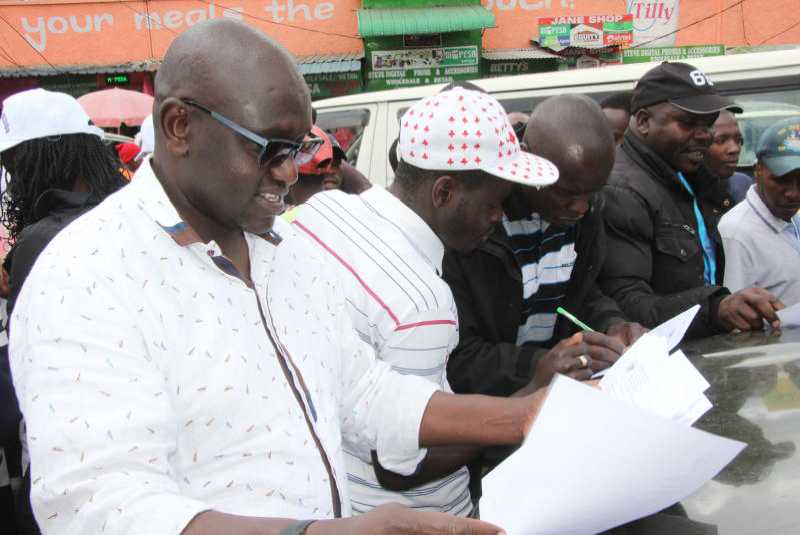×
The Standard e-Paper
Kenya’s Boldest Voice

Third way alliance party leader Dr Ekuru Aukot (in glasses) collect signatures from members of public at the at Nakuru main bus terminus on October 25,2018 during his Punguza mizigo referendum campaign initiative that propose to amend the constitution. [Photo:Kipsang Joseph/Standard]
Referendums are as old as the hills. They have been used since ancient Rome by governments to allow voters vote directly on a plethora of complex issues.